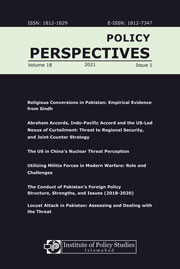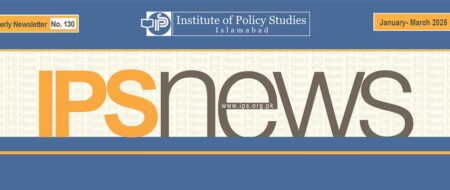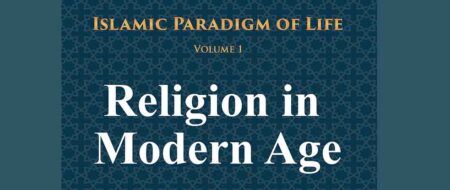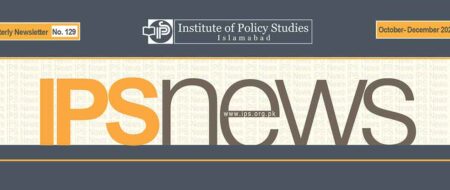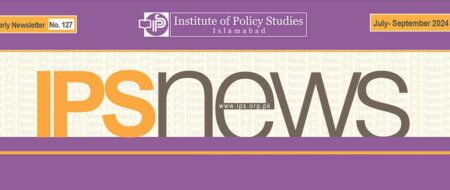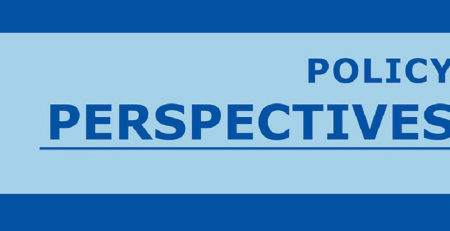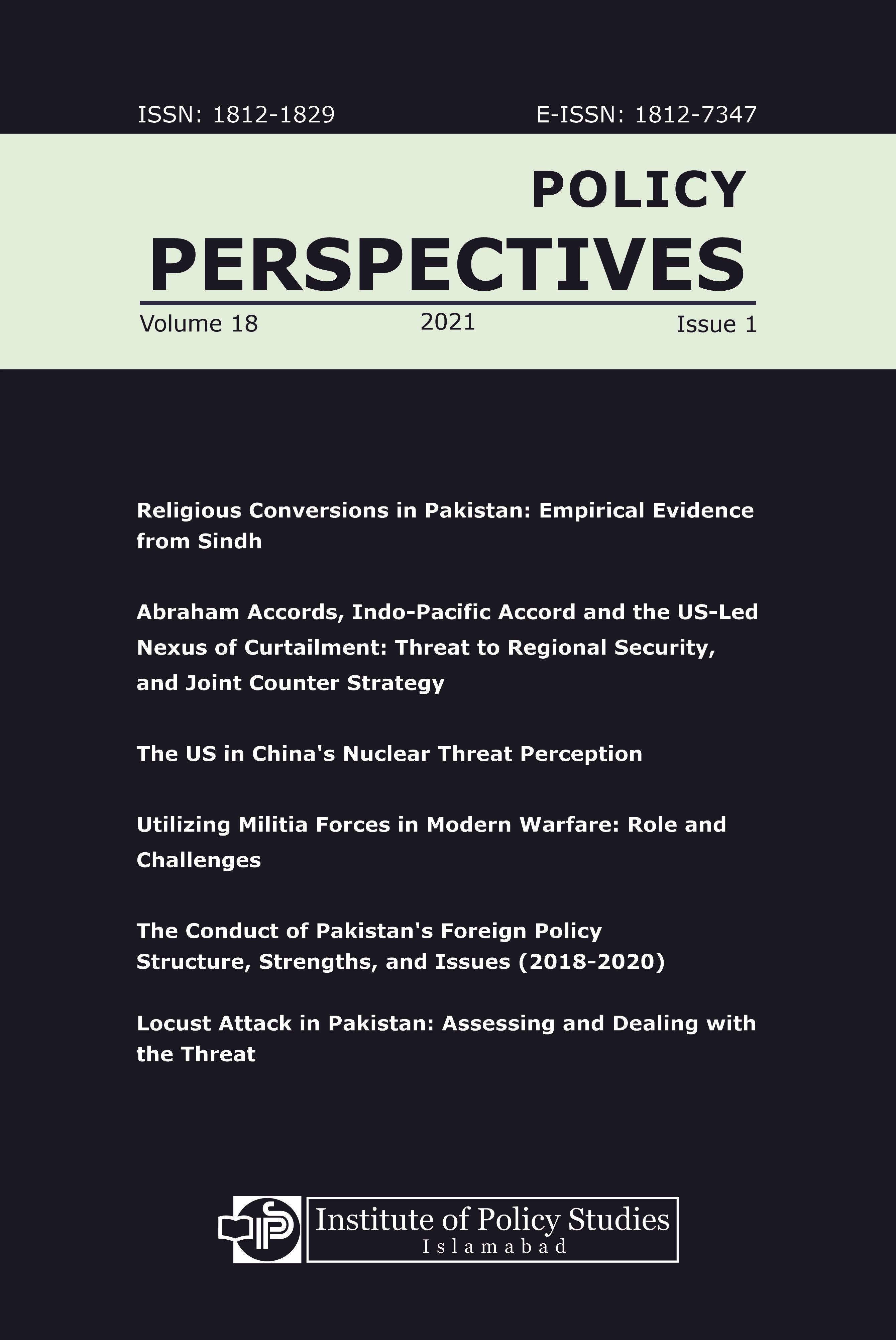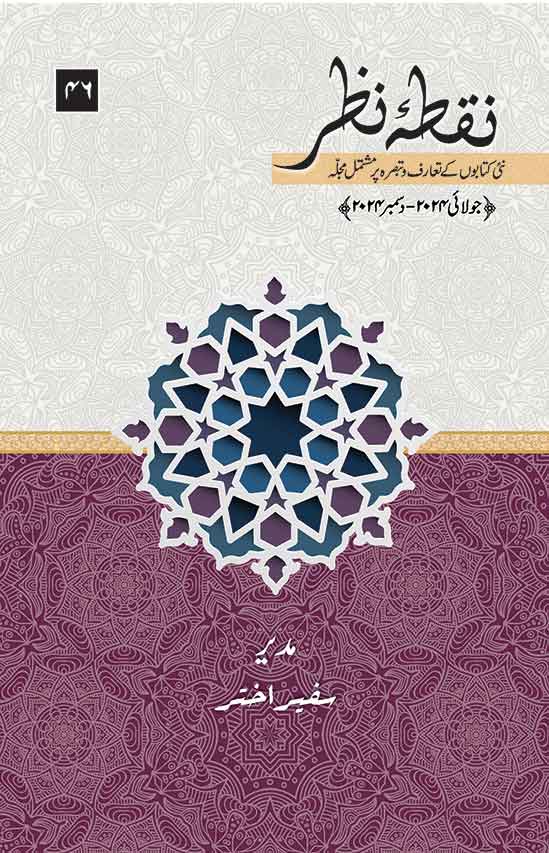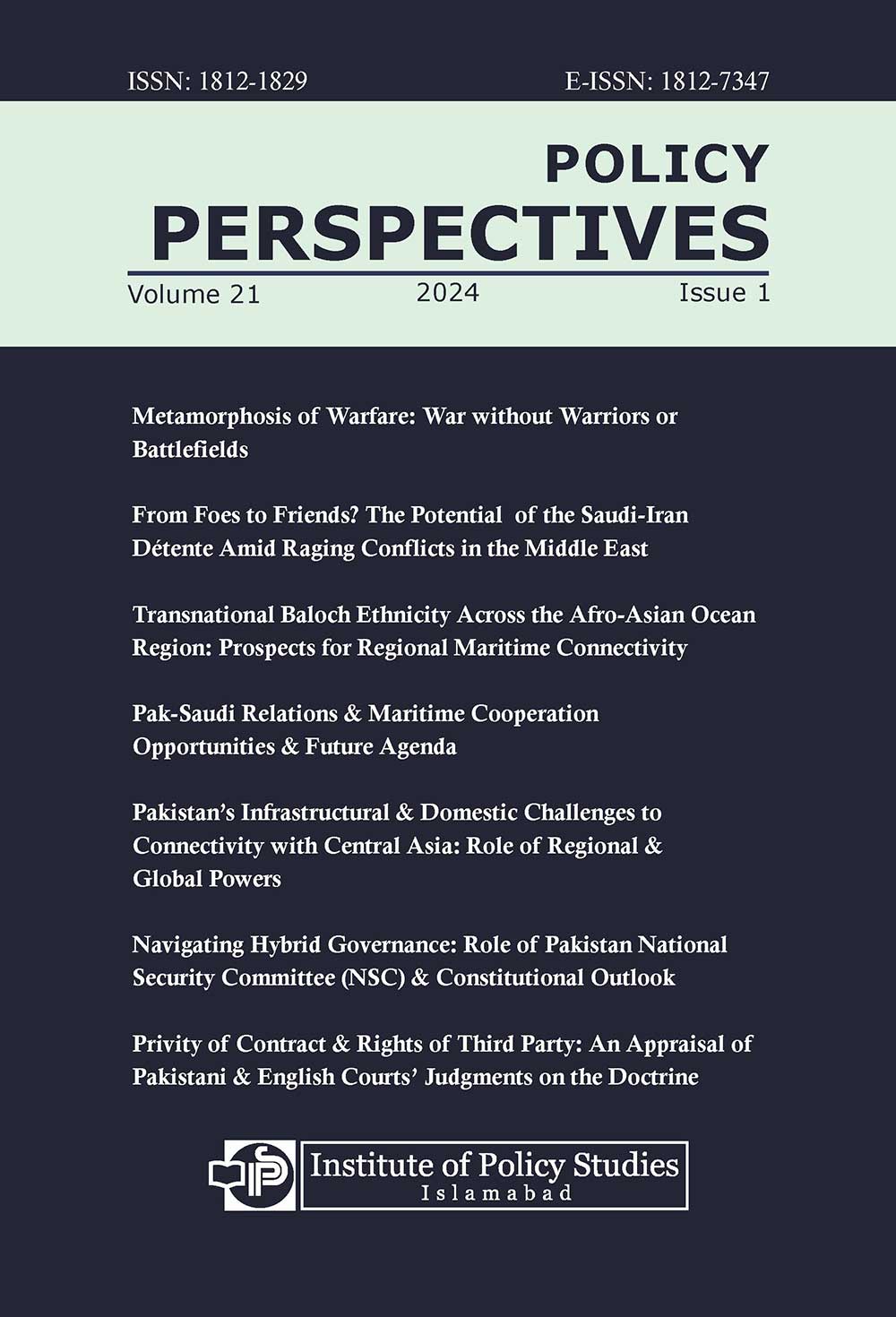Policy Perspectives (Volume 18, No. 1, 2021)
|
Editor-in-Chief: Khalid Rahman Download Contents |
The latest edition of IPS’ flagship journal Policy Perspectives—disseminating the research carried out by IPS, its associates, and experts on diverse range of current and evolving topics—is out now. This issue brings forth contributions on topics related to the domestic issues of Pakistan as well as global politics.
The first paper “ Religious Conversions in Pakistan: Empirical Evidence from Sindh ” evaluates the popular narrative regarding the treatment of the religious minorities in Pakistan. It identifies push and pull factors that contribute to religious conversions in its province of Sindh. It also questions the widespread perception of only minor women being converted.
Author: Ghulam Hussain
https://www.jstor.org/stable/10.13169/polipers.18.1.0005
The paper “ Abraham Accords, Indo-Pacific Accord and the US-Led Nexus of Curtailment: Threat to Regional Security, and Joint Counter Strategy ” discusses the emerging geostrategic moves and the shifting balance of power. It views the rearrangements in the Middle East and Gulf as part of increasing US’ focus on China and suggests a joint regional strategy to avoid the likelihood of ‘constructive chaos’ and unbecoming interventions by extra-regional players.
Authors: Shabana Syed and Dr Zainab Ahmed
https://doi.org/10.13169/polipers.18.1.0025
The next paper on “ The US in China’s Nuclear Threat Perception ” argues that China’s nuclear threat perception, of which its nuclear weapons program is a byproduct, is driven by the external strategic environment where the United States (US) is a key player. It outlines the US nuclear weapon policy and capability that shape China’s nuclear threat perception.
Authors: Khusrow Akkas Abbasi and Zahida Khalid
https://doi.org/10.13169/polipers.18.1.0053
The paper “ Utilizing Militia Forces in Modern Warfare: Role and Challenges ” discusses the increasing role of militia forces in the irregular, asymmetric, and urban warfare in a post-9/11 environment. The informal Pro-Government Militias (PGMs) now operate in juxtaposition with the regular land forces, and the states find in them a more feasible option to engage with security threats; however, it may not be an ideal option for the weaker states.
Authors: Dr Muhammad Nasrullah Mirza and Naveed Mushtaq
https://doi.org/10.13169/polipers.18.1.0069
As the current federal government in Pakistan is operating in a challenging global environment, “ The Conduct of Pakistan’s Foreign Policy: Structure, Strengths, and Issues (2018-2020) ” presents a reality check on the functioning of foreign office of Pakistan and the conduct of the foreign policy. A review of the foreign policy apparatus, as well as the role and contribution of the policymaking forums in this paper suggests the need for a renewed and more inclusive approach in the conduct of foreign policy.
Author: Ambassador (r) Tajammul Altaf
https://doi.org/10.13169/polipers.18.1.0085
The final paper “ Locust Attack in Pakistan: Assessing and Dealing with the Threat ” takes account of a recent biological calamity that impacted food security and economic conditions in large areas in and around Pakistan. This paper examines the government’s response to the recent locust attack and provides policy recommendations that may be workable at the micro and macro levels.
Author: Bukhtawer Pervaz
https://doi.org/10.13169/polipers.18.1.0109
The full text of the articles is available at: <https://www.jstor.org/stable/10.13169/polipers.18.issue-1?refreqid=fastly-default%3Aa41d5277b9fc0620116bac0d4f8c553c>



